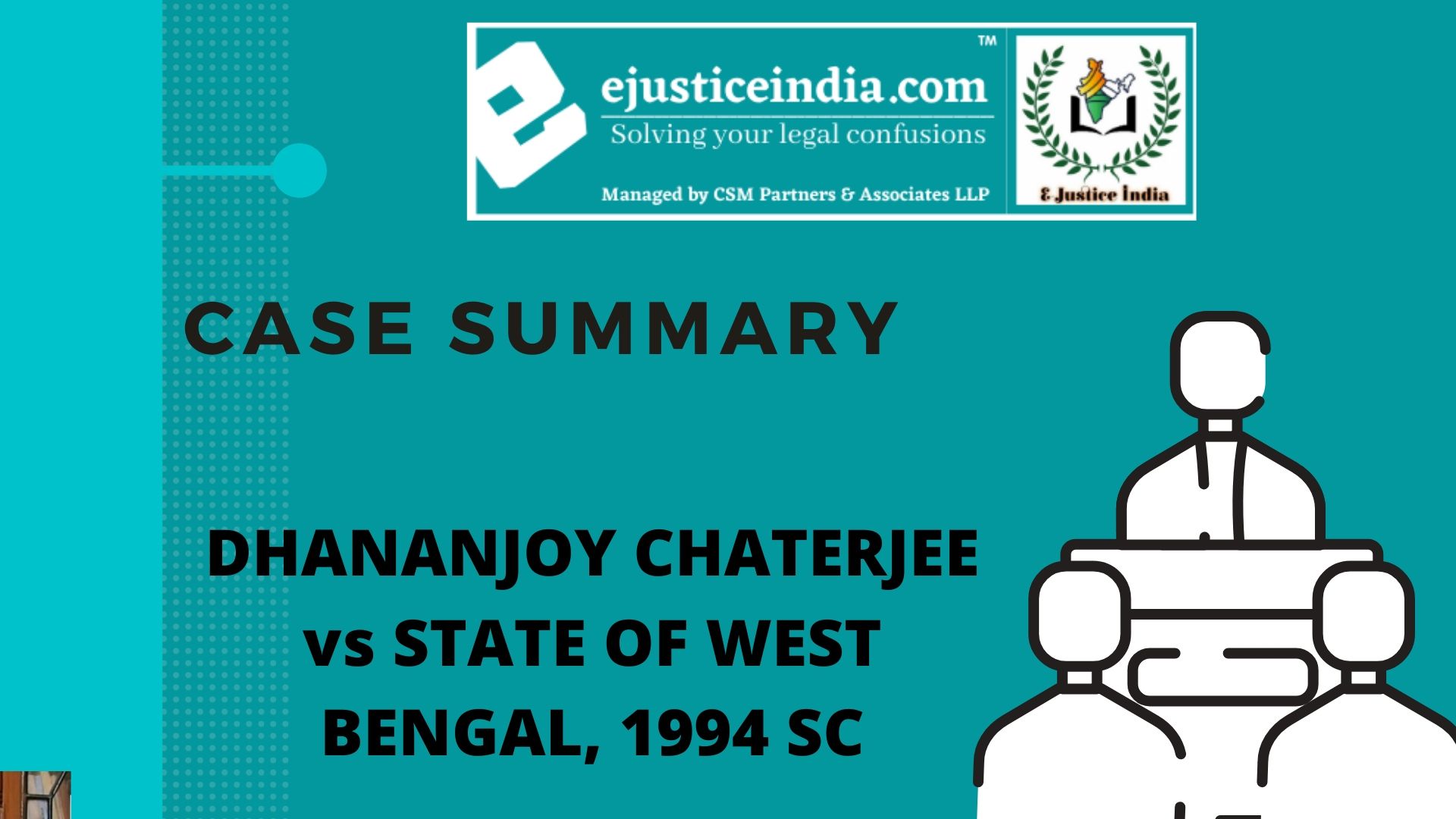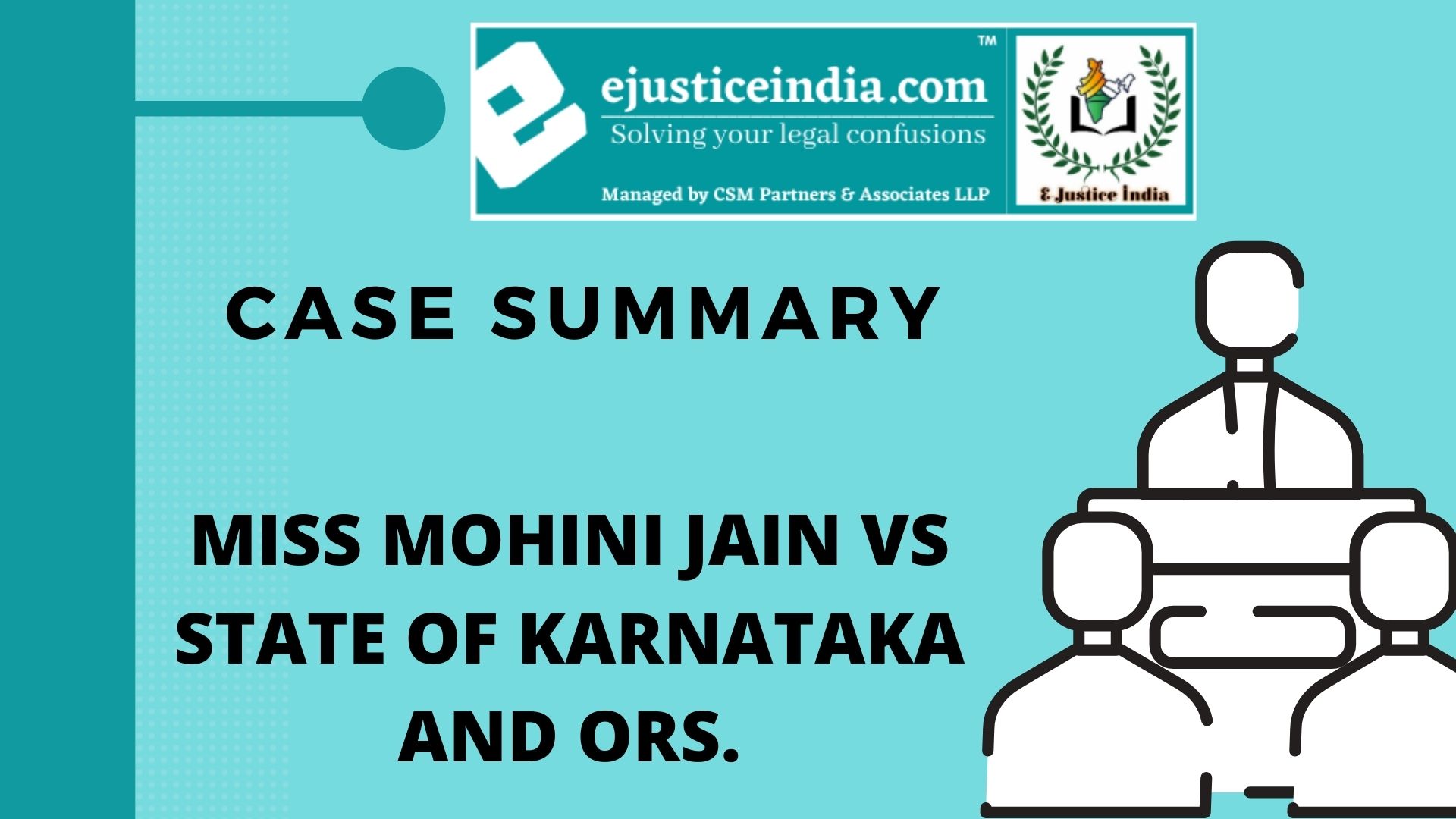Case Summary : ABDUL MATIN AND ORS. VS ABDUL AZIZ AND ORS.
Author : Darshi Sanghvi
- CITATION:
LQ 1989 HC 4935
- BENCH
HON’BLE MR. JUSTICE B.P. SARAF
- INTRODUCTION
The present case of Abdul Matin And Ors. Vs Abdul Aziz And Ors. deals with the determination of the title, rights and interests of different kinds of heirs towards a partitioned piece of land under the Mohammaden Law of Succession and Inheritance.
- FACTS
Abdul Gafur was the owner of 4 kathas of land, which was mutually separated amongst his heirs post his death. Upon partition, his 2 daughters Salimon Nessa and Halimon Nessa received 1 K-3’Ls of land respectively. Pursuant to a registered sale deed, Halimon Nessa sold half of her share in the land to her sister, thus making her the absolute owner of IK-3Ls of land. The sisters died, leaving behind their heirs. Halimon Nessa left behind her son and the plaintiff, Abdul Matin. Salimon Nessa left behind her husband Kitab Ali (Defendant no. 6) and his sister’s son Abdul Matin. Defendant no. 6 thereafter by virtue of a gift deed, gifted the entire piece of land to Abdul Latif, who further sold the said land to Defendant no. 5. The title of the land was thus claimed by Defendant no. 5 by virtue of his purchase from Abdul Latif.
- ISSUES AND FACTS OF LAW
- Whether the plaintiff was entitled to claim the title of 17 1/4 lechas of land under the Mohammaden Law of Succession?
- Whether the partition of the said land was enforceable under the law?
- Whether on the death of Salimon Nessa, the property left by her can be devolved partly on her husband and Abdul Matin, or entirely on her husband?
- Whether the suit was barred by limitation?
- Up to what extent were Sections 61, 63 and 66 of Mulla’s Principles of Mahomedan Law applicable?
- Whether the exception to Section 66 of Mulla’s Law which deals with “return” is applicable?
- JUDGEMENT
The learned appellate court, in what may be the first-of-its-kind judgment, entertained the objection and took a decision against the plaintiff-appellant, restricting him of any opportunity to bring forth necessary evidence in that respect.
- ANALYSIS
The learned courts below committed manifest error of law in holding that the plaintiff had no right, title or interest over any part of land in question. Much more so, because he was entitled to half share of the land devolved to him on the death of his mother Salimon Nessa. It was further observed that the question of limitation was not dealt with by the first Appellate Court. All the impugned judgements and decrees passed by the learned Courts could not be sustained and were thus set aside. The case was further remanded to Assistant District Judge, Guwahati, to decide it afresh on the basis of the relevant principles of law.


